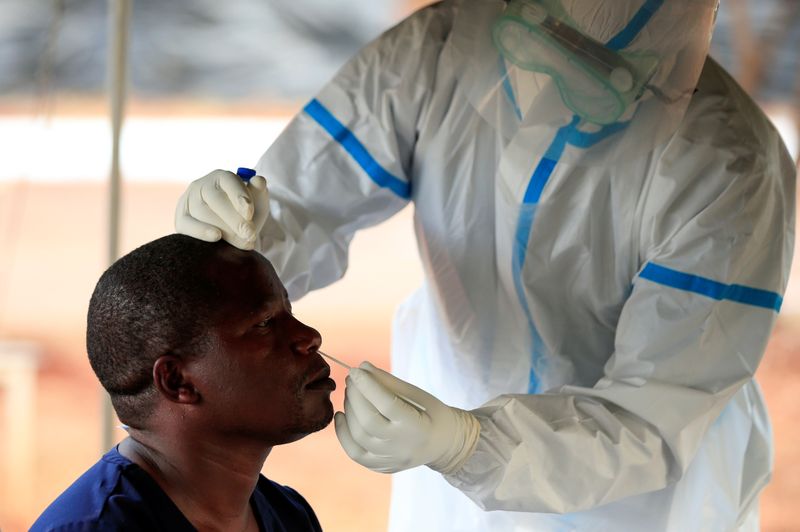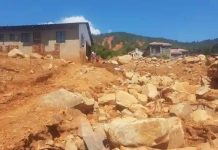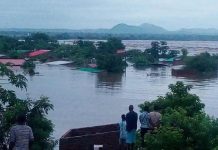Obert Matondokosi, 34, the only male trainee of 40 new Village Health Workers (VHWs) who underwent a 3-week pre-service and COVID-19-themed training in Chimanimani District, feels obligated to carry the community’s concerns on his shoulders.
Obert is from Gadyadza village, close to the border with Mozambique. His village was one of the areas that suffered the effects of Cyclone Idai in March 2019. Heavy rains that resulted in landslides washed away houses and resulted in many deaths and loss of livelihoods.
“I lost friends and relatives to Cyclone Idai. This district, with the help of UNICEF, World Bank and other partners, is slowly coming to terms with the devastating effects of those torrential rains that scarred communities,” he said.
“The best we can do is to help each other to come to terms with what we went through. We are a resilient people and I view this COVID-19 training opportunity as a chance to help continue to support my community the way I also did in 2019,” Obert said.
Obert, and 39 others from several villages, said he finds the training essential for understanding what the pandemic is, how it is transmitted, how it is prevented and who is at most risk. “After these three weeks of learning and discussions, I now understand how important it is to maintain good personal hygiene standards and social distancing as critical prevention measures to minimize the risk of contracting COVID-19.”
“COVID-19 is an infectious disease that can be transmitted by getting into contact with droplets from coughing and sneezing from a person with COVID-19 or touching unclean surfaces or equipment. If people do not wash their hands with soap and alcohol-based hand sanitisers this increases the risk of COVID-19. I learnt about the signs and symptoms of the disease that I can report immediately to the clinic for timely treatment.,” said Obert, continuing “that there is no vaccine available and prevention is the key!”
Obert was also among 400 VHWs who received bicycles in Chimanimani and Chipinge from UNICEF with funding support from the World Bank Zimbabwe Idai Recovery Project (ZIRP). This support contributed to increasing the number of VHWs that received bicycles this year to 2,400 in 31 rural districts across the country for improved access to marginalised areas and health facilities.
“This bicycle is appreciated. I can now cover many households. It used to be hard to cover a large area but this will help many households that I can now access.,” he said.






